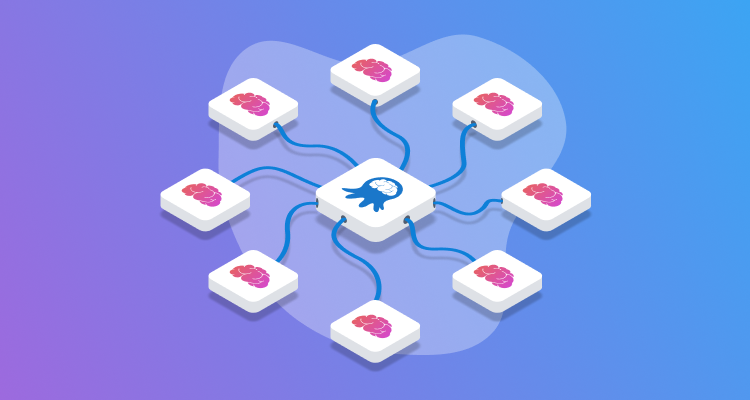Execution containers in Octopus Deploy make it easy to ensure you have the tooling you need when running your steps.
As with all things that use containers, you need to specify either the specific tag for the version you want to use or always accept the latest version. For various reasons, you may need to update the image and or tag used with execution containers. This can be time-consuming if you have lots of processes or runbooks that make use of them.
In this post, I show you how to use PowerShell and the Octopus API to programmatically update the execution container image.
The issue using worker-tools for execution containers
If you’re familiar with the Samples instance, you’ll know that the projects make heavy use of execution containers. I maintain the Samples, so it’s my job to make sure that the examples continue to function and deploy properly.
Many of the example projects used the octopusdeploy/worker-tools image as it contains commonly used tooling for a multitude of tasks. However, this image doesn’t use the latest tag, so you need to specify the tag version in every step that uses it.
We developed the example projects on Samples when the standard Ubuntu image was version 18.04. This is now deprecated and we tagged the worker-tools image this way. Going through each project and updating the referenced container one-by-one was less than appealing - Octopus API to the rescue!
PowerShell script
I knew this would be an ongoing issue, so I wrote a PowerShell script that uses the Octopus API to iterate through all spaces, projects, and runbooks and update them to use the image that I specified.
The following script is just an example of how to perform bulk operations on deployment and runbook steps. Please review carefully if you intend to run this on your own instance.
Variables
The script requires a few variables for execution:
$octopusUrl: The URL to your Octopus instance$octopusAPIKey: API key with sufficient permissions to update the deployment and runbook processes$linuxWorkerToolsImage: The Linux image to update to (for example,octopusdeploy/worker-tools:ubuntu.22.04)$windowsWorkerToolsImage: The Windows image to update to (for example,octopusdeploy/worker-tools:windows.ltsc2019)
The script
The script below iterates through all spaces, deployment processes, and runbook processes looking for where an execution container is used. If found, it checks to see if the name of the image contains octopusdeploy/worker-tools and updates the image to the one specified in the $linuxWorkerToolsImage or $windowsWorkerToolsImage.
Version controlled projects and runbooks that have never been published get skipped. I made an assumption that runbooks that have never been published are that way on purpose.
$ErrorActionPreference = "Stop";
function Get-OctopusItems
{
# Define parameters
param(
$OctopusUri,
$ApiKey,
$SkipCount = 0
)
# Define working variables
$items = @()
$skipQueryString = ""
$headers = @{"X-Octopus-ApiKey"="$ApiKey"}
# Check to see if there there is already a querystring
if ($octopusUri.Contains("?"))
{
$skipQueryString = "&skip="
}
else
{
$skipQueryString = "?skip="
}
$skipQueryString += $SkipCount
# Get initial set
Write-Host "Calling $OctopusUri$skipQueryString"
$resultSet = Invoke-RestMethod -Uri "$($OctopusUri)$skipQueryString" -Method GET -Headers $headers
# Check to see if it returned an item collection
if ($null -ne $resultSet.Items)
{
# Store call results
$items += $resultSet.Items
# Check to see if result set is bigger than page amount
if (($resultSet.Items.Count -gt 0) -and ($resultSet.Items.Count -eq $resultSet.ItemsPerPage))
{
# Increment skip count
$SkipCount += $resultSet.ItemsPerPage
# Recurse
$items += Get-OctopusItems -OctopusUri $OctopusUri -ApiKey $ApiKey -SkipCount $SkipCount
}
}
else
{
return $resultSet
}
# Return results
return $items
}
# Define working variables
$octopusURL = "https://YourUrl"
$octopusAPIKey = "API-YourApiKey"
$linuxWorkerToolsImage = "octopusdeploy/worker-tools:ubuntu.22.04"
$windowsWorkerToolsImage = "octopusdeploy/worker-tools:windows.ltsc2019"
$header = @{ "X-Octopus-ApiKey" = $octopusAPIKey }
# Get space
$spaces = Get-OctopusItems -OctopusUri "$octopusURL/api/spaces" -ApiKey $octopusAPIKey
foreach ($space in $spaces) {
Write-Host "Working on space $($space.name)"
Write-Host "Getting project list ..."
$projects = Get-OctopusItems -OctopusUri "$octopusURL/api/$($space.Id)/projects" -ApiKey $octopusAPIKey
# Loop through projects
foreach ($project in $projects)
{
# Check to see if project is version controlled
if ($project.IsVersionControlled -eq $true)
{
Write-Host "Project is version controlled, skipping ..."
continue
}
# Get project deployment process
Write-Host "Getting deployment process for $($project.Name)..."
$deploymentProcess = Get-OctopusItems -OctopusUri "$octopusURL/api/$($space.Id)/deploymentProcesses/$($project.DeploymentProcessId)" -ApiKey $octopusAPIKey
$processUpdated = $false
# Analyze steps
foreach ($step in $deploymentProcess.Steps)
{
# Analyze action
foreach ($action in $step.Actions)
{
if (![string]::IsNullOrWhiteSpace($action.Container.Image))
{
# Check to see if the image contains our name
if ($action.Container.Image.Contains("octopusdeploy/worker-tools"))
{
# Determine architecture
if ($action.Container.Image.Contains("ubuntu") -and ($action.Container.Image -ne $linuxWorkerToolsImage))
{
# Update with specified image
Write-Host "Updating step $($step.Name) to use $linuxWorkerToolsImage ..."
$action.Container.Image = $linuxWorkerToolsImage
$processUpdated = $true
}
if ($action.Container.Image.Contains("windows")-and ($action.Container.Image -ne $windowsWorkerToolsImage))
{
# Update with specified image
Write-Host "Updating step $($step.Name) to use $windowsWorkerToolsImage ..."
$action.Container.Image = $windowsWorkerToolsImage
$processUpdated = $true
}
}
else
{
Write-Host "Specified container image does not match 'octopusdeploy/worker-tools', skipping ..."
}
}
}
}
# Update the deployment process
Write-Host "Updating deployment process for $($project.Name) ..."
Invoke-RestMethod -Method Put -Uri "$octopusURL/api/$($space.Id)/deploymentProcesses/$($project.DeploymentProcessId)" -Body ($deploymentProcess | ConvertTo-Json -Depth 10) -Headers $header
# Get runbooks for project
$runbooks = Get-OctopusItems -OctopusUri "$OctopusURL/api/$($space.Id)/projects/$($project.Id)/runbooks" -ApiKey $octopusAPIKey
foreach ($runbook in $runbooks)
{
if ($null -ne $runbook.Id)
{
if ($null -ne $runbook.PublishedRunbookSnapshotId)
{
# Get published snapshot process
$publishedRunbookSnapshot = Get-OctopusItems -OctopusUri "$octopusURL/api/$($space.Id)/runbooksnapshots/$($runbook.PublishedRunbookSnapshotId)" -ApiKey $octopusAPIKey
$processUpdated = $false
$runbookProcess = Get-OctopusItems -OctopusUri "$octopusURL/api/$($space.Id)/runbookprocesses/$($publishedRunbookSnapshot.FrozenRunbookProcessId)" -ApiKey $octopusAPIKey
$currentRunbookProcess = Get-OctopusItems -OctopusUri "$octopusURL/api/$($space.Id)/runbookprocesses/$($runbook.RunbookProcessId)" -ApiKey $octopusAPIKey
# Analyze steps
foreach ($step in $runbookProcess.Steps)
{
# Analyze action
foreach ($action in $step.Actions)
{
if (![string]::IsNullOrWhiteSpace($action.Container.Image))
{
# Check to see if the image contains our name
if ($action.Container.Image.Contains("octopusdeploy/worker-tools"))
{
# Determine architecture
if ($action.Container.Image.Contains("ubuntu") -and ($action.Container.Image -ne $linuxWorkerToolsImage))
{
# Update with specified image
Write-Host "Updating step $($step.Name) to use $linuxWorkerToolsImage ..."
$action.Container.Image = $linuxWorkerToolsImage
$processUpdated = $true
}
if ($action.Container.Image.Contains("windows") -and ($action.Container.Image -ne $windowsWorkerToolsImage))
{
# Update with specified image
Write-Host "Updating step $($step.Name) to use $windowsWorkerToolsImage ..."
$action.Container.Image = $windowsWorkerToolsImage
$processUpdated = $true
}
if (!$processUpdated)
{
Write-Host "Step $($step.Name) already using specified image, skipping ..."
}
}
else
{
Write-Host "Specified container image does not match 'octopusdeploy/worker-tools', skipping ..."
}
}
}
}
}
else
{
Write-Host "Runbook $($runbook.Name) doesn't have a published snapshot, skipping ..."
Continue
}
# Create new runbook snapshot
$runbookSnapshotTemplate = Get-OctopusItems -OctopusUri "$octopusURL/api/$($space.Id)/runbookprocesses/$($publishedRunbookSnapshot.FrozenRunbookProcessId)/runbookSnapshotTemplate" -ApiKey $octopusAPIKey
$body = @{
ProjectId = $project.Id
RunbookId = $runbook.Id
Name = $runbookSnapshotTemplate.NextNameIncrement
Notes = $null
SelectedPackages = @()
}
# Include latest built-in feed packages
foreach($package in $runbookSnapshotTemplate.Packages)
{
# Get latest package version
$packages = Invoke-RestMethod -Uri "$octopusURL/api/$($space.Id)/feeds/$($package.FeedId)/packages/versions?packageId=$($package.PackageId)&take=1" -Headers $header
$latestPackage = $packages.Items | Select-Object -First 1
$package = @{
ActionName = $package.ActionName
Version = $latestPackage.Version
PackageReferenceName = $package.PackageReferenceName
}
$body.SelectedPackages += $package
}
$body = $body | ConvertTo-Json -Depth 10
Write-Host "Updating runbook process for $($runbook.Name) ..."
$runbookProcess.Version = $currentRunbookProcess.Version
$runbookProcess.Id = $runbook.RunbookProcessId
Invoke-RestMethod -Method Put -Uri "$octopusURL/api/$($space.Id)/runbookprocesses/$($runbookProcess.Id)" -Body ($runbookProcess | ConvertTo-Json -Depth 10) -Headers $header
Write-Host "Creating new snapshot for $($runbook.Name) ..."
$newRunbookSnapshot = Invoke-RestMethod -Method Post -Uri "$octopusURL/api/$($space.Id)/runbookSnapshots" -Body $body -Headers $header
Write-Host "Publishing snapshot $($newRunbookSnapshot.Id) ..."
$runbook.PublishedRunbookSnapshotId = $newRunbookSnapshot.Id
Invoke-RestMethod -Method Put -Uri "$octopusURL/api/$($space.Id)/runbooks/$($runbook.Id)" -Body ($runbook | ConvertTo-Json -Depth 10) -Headers $header
}
}
}
}Conclusion
Maintaining deployment processes is typically a non-issue, and done on an as-needs basis. Execution containers is one of the few areas where you might need to update multiple items, and this would be tedious to do manually. Thankfully, the Octopus API is robust and you can use it to make mass updates in an automated fashion.
Happy deployments!





